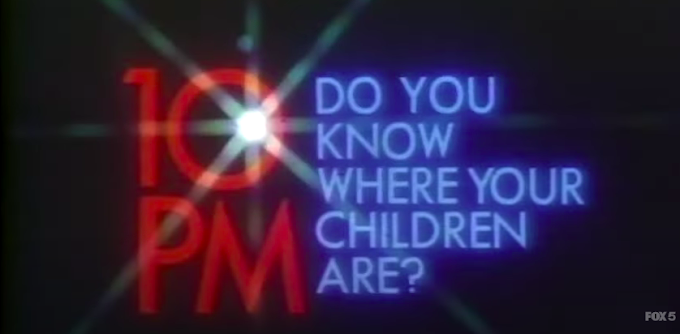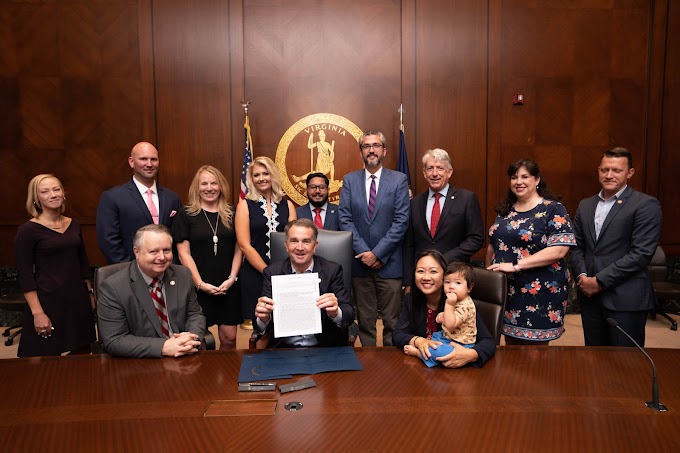"If it bleeds it leads" was the headline of many of my journalism classes.
I would like to say that this quote is attributable to just one of my journalism professors, but the truth is I think they all said it. The most likely culprit was a Berenstain-bear-looking white man who wore red suspenders and sported a babushka doll-like midsection. He also told the female would-be journalists in our courses that we should become sports reporters because our looks were highly marketable. It was the early 2000s and the news was in its 24/7 heyday full of fear-mongering. And my professor's comments, while sexist today, felt less odd to a generation of journalists whose parents both said we could be anything, but also were essentially absentee.
"It's 10 o'clock, do you know where your children are?"
The news had to remind parents that they had children. As the 10 o'clock news programming aired our parents were reminded why they needed to care. The news was scary. Full of car accidents, irresponsible politicians and a looming threat that serial killers were waiting in the wings ready to snatch up children to eat them or whatever 80s parents worried about.
Breaking news generally featured some kind of sex scandal, where the reporter uncovered some lurid detail to prove their merit. It felt less like the Voice given to the underserved and more like a megaphone given to the undeserving.
I chose not to follow the typical journalistic career path because of the climate I was shown in college. I just knew there had to be a better way to tell stories.
How Headlines Hook Us
The media has always known that leading with tragedy will hook in the reader or viewer and it's no less true today. But today as we scroll through social media, journalists are forced to catch our attention with headlines, while also balancing SEO (Search Engine Optimization) performance. But here is a secret that many don't know.
Journalists don't always write our own headlines. Editors write them and some are really good at it and some aren't. Some focus on telling the story and others focus on grabbing readers. But in military media what headlines get the most attention?
How Headlines Perpetuate Gender Discrimination
A report was recently published that showed that female service members attempting to join special forces units faced systemic discrimination. And then the media made it worse.
I am really torn. If someone sees these sensational headlines they may be more likely to click on them, getting their content in front of more eyes. But is priming trolls and perpetuating sterotypical messages an irresponsible justification for revictimizing those who have experienced discrimination?
Stars & Stripes Headline
This headline focuses on the subject, not the sensationalism of the content, it leads off with the data and a leadership response, followed by sexist comments from the study, not the comments of the subjects of the study/article.
MilitaryTimes Headline
"Women in Army SOF resorted to buying their own armor, study finds"
This is the best version of this article, written by a female reporter. The headline describes the subject, focusing on SEO not sensation and she leads with the study and follows up the data with quotes from the subjects of the report, the female SOF members.
Military.com Headline
This one makes me cringe because I love military.com. They see the value in telling military family stories and generally quote women more often than the other outlets. But this headline is a low point. It is clickbait that primes trolls to comment on the article without reading it. The article lede (opening paragraph) bypasses the study and instead talks about female service members' service as if it is the news itself. Its first quote is a sexist one, "I dread the day a woman arrives on a Team and I hope I am retired by the time that happens," one noncommissioned officer, or NCO, wrote in a survey with anonymous comments that was included in the Army study."
Can We Rewrite Our Headlines?
It's tempting to say, those journalists are just so terrible.
I call bull shit.
They're not terrible. They have done the reporting, presenting both sides. They are leading with sensational content because they know if it's not at the top of the page you won't read to the end. Editors write clickbait headlines because that is what YOU click. That is what I click. That's what trolls click and engage with, which results in increased attention to the article. And the attention keeps the doors open so that reporters can do their jobs, which is reporting, not headline writing.
If we want to force editors and journalists to do better, we need to click on the less sensational stories and actually read them. We need to insist that stories that talk about gender discrimination don't give voice to the perpetrators. Think it's impossible to change this system? It's not.
The reporting that covers school shootings has shifted over the past two decades. In the early days of school shootings, everything focused on the perpetrators. I still know Dylan Klebold's name. But I couldn't tell you one of the victims of the Columbine school shooting, the incident that made Klebold infamous. Vitcim's advocates and law enforcement pointed this out to journalists and since then there has been an intentional effort to focus on victims and
not name the perpetrators which inadvertently glamorizes criminal behavior and results in copycatting.
We all can do better.








0 Comments